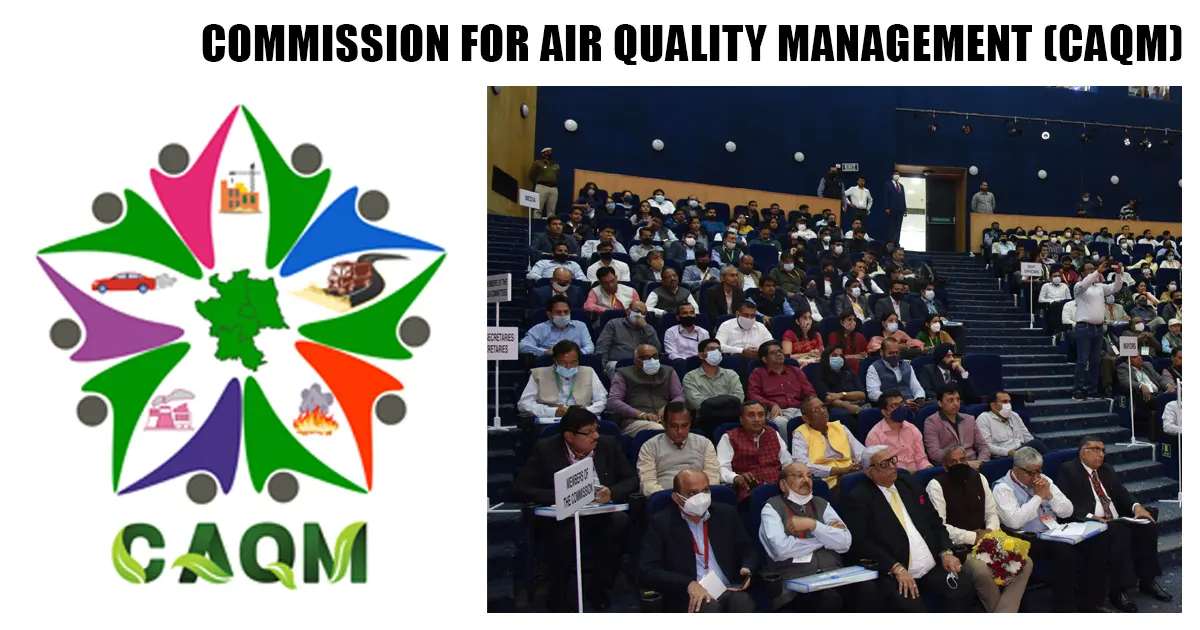
Introduction
The Commission for Air Quality Management (CAQM) was established as a statutory body under the CAQM in National Capital Region (NCR) and Adjoining Areas Act, 2021. It aims to ensure coordinated and efficient management of air quality in the Delhi-NCR and surrounding regions.
Mandate
- Primary Focus:
- Prevention, control, and resolution of issues surrounding air pollution.
- Management of the Air Quality Index (AQI) for Delhi-NCR and adjoining states.
- Scope of Operations:
- Covering Delhi, Punjab, Haryana, Rajasthan, and Uttar Pradesh, due to their contribution to Delhi’s air quality challenges.
- Coordination with these states and the Delhi government.
Powers of CAQM
- Restrictive Authority:
- Can restrict activities that adversely impact air quality.
- Research and Guidelines:
- Conducts research on environmental pollution and prepares codes and guidelines to prevent and control air pollution.
- Inspection and Regulation:
- Empowered to issue binding directions for inspections, regulations, or other measures to improve air quality.
- Enforcement:
- All directions/orders issued by the Commission are legally binding on individuals, officers, or authorities.
Accountability
- The Commission is directly accountable to Parliament.
Composition
- Chairperson:
- A senior government official (Secretary or Chief Secretary rank).
- Tenure: Three years or until the age of 70 years, whichever is earlier.
- Ex Officio Members:
- Five members: Chief Secretaries or Secretaries responsible for environment protection in the states of Delhi, Punjab, Haryana, Rajasthan, and Uttar Pradesh.
- Technical Members:
- Three full-time technical members with expertise in environmental management.
- Non-Governmental Representation:
- Three members from NGOs involved in environmental protection.
- Specialist Members:
- Experts from CPCB, ISRO, and NITI Aayog for technical and scientific advice.
Significance
The CAQM provides a centralized mechanism for tackling air pollution in Delhi-NCR, particularly concerning:
- Stubble burning in Punjab and Haryana.
- Vehicular emissions and industrial pollution in NCR.
- Construction dust and seasonal factors contributing to poor air quality.
Its statutory authority and binding enforcement powers enhance its ability to take decisive and coordinated action to improve air quality.




